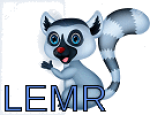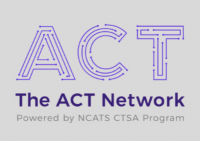Projects
Developing a Learning Electronic Medical Record (LEMR) system
Electronic medical records (EMRs) are capturing increasing amounts of patient data that can be leveraged by machine-learning methods for computerized decision support. This project focuses on the development of intelligent EMRs that contain adaptive and learning components to provide decision support using the right data, at the right time.
This work is funded by a R01 grant from the NLM, NIH.
Realtime identification of brain ischemia during surgery
Brain ischemia and stroke that occur during surgery is a devastating complication and with increasing number of surgical procedures this complication is likely to increase. Currently, continuous intraoperative monitoring of brain activity for ischemia and stroke is done using electroencephalogram (EEG) for high risk surgeries. The EEG signals are monitored visually by a trained physician which is tiring, error prone and expensive. In this project, we are developing a software system that will use machine learning to analyze the EEG signals in realtime, and alert the monitoring physician if ischemia or stroke is detected. Such an automated monitoring and alerting system will make high risk surgeries safer and furthermore will enable the automated brain monitoring of all surgeries in the future.
This work is funded by a grant from UPMC Enterprises.
Outlier-based monitoring and alerting
Statistical anomalies in patient management actions may correspond to medical errors. In this project machine-learning methods are used to identify patient-management actions that are unusual with respect to actions used to manage comparable patients in the past. And an alert is raised if such an action is deemed a statistical outlier. This method complements existing knowledge-based detection and alerting methods that are clinically precise, but costly to build. PIs of the project are Milos Hauskrecht, Gilles Clermont and Gregory F. Cooper.
This work is funded by a R01 grant from the NIGMS, NIH.
Biomedical Informatics Core, CTSI
The Biomedical Informatics Core of the Clinical and Translational Science Institute (CTSI) has established a research data warehouse; developed and deployed user-friendly, web-based informatics tools such as a Cohort Discovery Tool and a Computable Phenotype Library Tool; and is developing a secure data analytic environment.
This work is funded by grant UL1 TR001857 from NCATS, NIH.
Neptune
Neptune is a research data warehouse that has been established to provide electronic medical record and research data for clinical and translational research and for national data marts.
This work is funded by grant UL1 TR001857 from NCATS, NIH.
All of Us Research Program (Precision Medicine Initiative Cohort Program)
The University of Pittsburgh is funded as one of the Healthcare Provider Organizations for the national All of Us Research Program, which is a historic effort to gather data from 1 million people living in the United States. The goal of the program is to revolutionize how disease is prevented and treated based on individual differences in lifestyle, environment and genetics. The University of Pittsburgh's program, called the All of Us Pennsylvania Research Program, will enroll 120,000 participants.
This work is funded by grant OT2 OD026554 from the Office of the Director, NIH.
Accrual of patients to Clinical Trials (ACT) network
The Accrual of patients to Clinical Trials (ACT) network is a nationwide network of sites that share EHR data to significantly increase participant accrual to the nation’s highest priority clinical trials. It is funded by NCATS' Clinical and Translational Science Awards (CTSA) program that supports efforts to solve system-wide translational research problems to improve the success of U.S. clinical trials. The ACT network is built on existing platforms (i2b2/SHRINE) to create a federated network with common standards, data terminology and shared resources. The ACT investigators are focused on 1) data harmonization across EHR platforms, 2) technical needs assessment and implementation, 3) regulatory approaches to ensure compliance with protocols for data access and participant contact, and 4) governance development to establish proper agreements among institutions. More information is available at NCATS.
This work is funded by grant UL1 TR001857-01S1 from NCATS, NIH.
Genomic Information Commons (GIC)
The Genomic Information Commons (GIC) is a federated network that is developing two portals for researchers: (A) Prep-to- research portal. Investigators can execute genotype, phenotype, or combined genotype/phenotype queries, and receive aggregate results in real time; and (B) Study portal. With proper approvals, patient-level data are readily transferred to a cloud-hosted environment.
This work is funded by a U01 grant from the NCATS, NIH.






